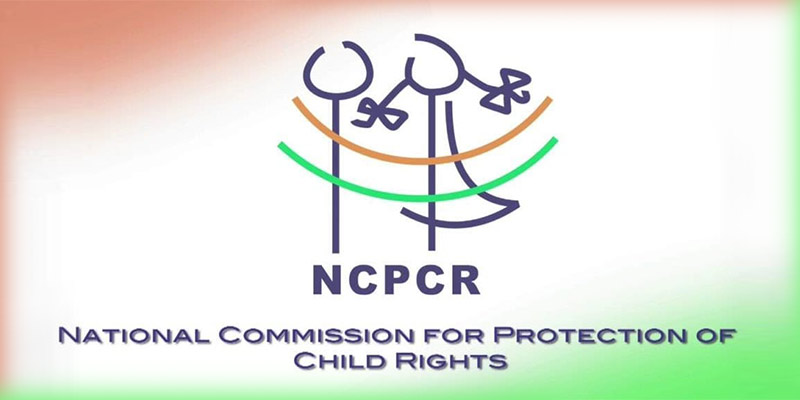- India
- Apr 01
NCPCR writes to education boards to ensure care for kids with diabetes
The National Commission for Protection of Child Rights (NCPCR) has written to the CBSE and all other education boards, stating it is the duty of schools to ensure that children with Type 1 diabetes are provided with proper care and required facilities.
The NCPCR has taken cognizance of the petitions it received from parents of the children diagnosed with juvenile diabetes (Type 1 diabetes).
Quick facts on diabetes:
• Diabetes is one of the fastest growing global health emergencies of the 21st century.
• Diabetes is a chronic disease, which occurs when the pancreas does not produce enough insulin, or when the body cannot effectively use the insulin it produces. This leads to an increased concentration of glucose in the blood (hyperglycaemia).
• Type 1 diabetes (earlier known as insulin-dependent or childhood-onset diabetes) is characterised by a lack of insulin production. Type 1 diabetes is a chronic condition in which the pancreas produces little or no insulin by itself.
• Type 2 diabetes (earlier known as non-insulin-dependent or adult-onset diabetes) is caused by the body's ineffective use of insulin. It often results from excess body weight and physical inactivity. Type 2 diabetes occurs when the body becomes resistant to insulin or doesn't make enough insulin.
• Gestational diabetes is hyperglycaemia that is first recognised during pregnancy. It can lead to serious health risks for both the mother and child.
• According to the International Diabetes Federation (IDF) Atlas 2021, it is estimated that 537 million people have diabetes worldwide, and this number is projected to reach 643 million by 2030, and 783 million by 2045.
• In addition, 541 million people are estimated to have impaired glucose tolerance in 2021.
• The countries with the largest numbers of adults with diabetes aged 20–79 years in 2021 are China, India and Pakistan.
• By country, India now has the highest estimated number of prevalent Type 1 diabetes cases in people under 20 years of age (229,400), followed by the USA (157,900) and Brazil 92,300.
• India accounts for one in 7 of all adults living with diabetes worldwide.
What is the role of NCPCR?
• The National Commission for Protection of Child Rights (NCPCR) was set up in March 2007 under the Commission for Protection of Child Rights Act, 2005.
• It works under the aegis of the ministry of women and child development (WCD).
• The Commission’s mandate is to ensure that all laws, policies, programmes and administrative mechanisms are in consonance with the child rights perspective as enshrined in the Constitution of India and also the UN Convention on the Rights of the Child.
• The child is defined as a person under the age of 18.
• The Commission visualises a rights-based perspective flowing into national policies and programmes, along with nuanced responses at the state, district and block levels, taking care of specificities and strengths of each region.
The Commission consists of:
• A chairperson who is a person of eminence and has done outstanding work for promoting the welfare of children.
• Six members, out of which at least two are women, are appointed by the central government.
Some of the functions of NCPCR:
1) Examine and review the safeguards provided by or under any law for the time being in force for the protection of child rights and recommend measures for their effective implementation.
2) Inquire into violation of child rights and recommend initiation of proceedings in such cases.
3) Examine all factors that inhibit the enjoyment of rights of children affected by terrorism, communal violence, riots, natural disaster, domestic violence, HIV/AIDS, trafficking, maltreatment, torture and exploitation, pornography and prostitution and recommend appropriate remedial measures.
4) Look into the matters relating to children in need of special care and protection including children in distress, marginalised and disadvantaged children, children in conflict with law, juveniles, children without family and children of prisoners and recommend appropriate remedial measures.
5) Study treaties and other international instruments and undertake periodical review of existing policies, programmes and other activities on child rights and make recommendations for their effective implementation in the best interest of children.
6) Undertake and promote research in the field of child rights.
7) Spread child rights literacy among various sections of the society and promote awareness of the safeguards available for protection of these rights through publications, the media, seminars and other available means.
8) Inquire into complaints and take suo motu notice of matters relating to:
• Deprivation and violation of child rights.
• Non-implementation of laws providing for protection and development of children.
• Non-compliance of policy decisions, guidelines or instructions aimed at mitigating hardships to and ensuring welfare of the children and to provide relief to such children or take up the issues arising out of such matters with appropriate authorities.
Manorama Yearbook app is now available on Google Play Store and iOS App Store


